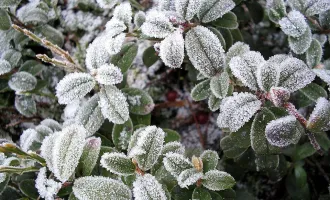
Photo by John Forson on Unsplash
This Date in UCSF History: Freedom From Fear
Originally written on Oct. 4, 2001, by Suzanne Rafidi while a student in the School of Medicine.
I am an American. I was born in a small town in Ohio. A town that my parents had lived in since they first moved to America. Yes, I am the child of immigrants. My father was born in Palestine; my mother in Jordan.
They came to America because it beckoned welcomingly with freedom and opportunity. They were intelligent young adults born into large families with enough love to sustain a nation, but not enough money to educate their children.
My parents love this country. The day after my mother was sworn in as an American citizen, her picture was in all the local newspapers. She was a symbol of the wholesome American dream: a young mother — my brother in her arms, me still encased in her belly — clutching an American flag, her eyes shining as she pledged allegiance to her country.
I was raised in a home where both American and Arabic customs were celebrated, two languages were spoken, and two worlds melded almost seamlessly. I was proud of my Middle Eastern heritage. And all through my life, to this day, I get goosebumps when I hear the Star Spangled Banner — as if every last cell of my being is saluting my United States.
And so my family and I were devastated on September 11. The nation that we loved was under attack. We were like every other American family that day. But there was a subtle difference. Since the attackers were somehow tied to our heritage, we were suddenly “others.”
I felt pressured to prove that I was just as devastated as everyone else. It wasn’t anything overt, just a tone of voice, a sideways glance. And then there were the reports of Americans attacking themselves: a teenager of Middle Eastern descent in Palo Alto beaten up by his classmates; an Islamic woman in Sacramento hit by passers-by as she walked her little boy to school.
The people who attacked us were not Arab. They were not Muslim. They were brainwashed fanatics. This was not about religion or politics. It was rape — an attempt at violent domination.
My parents are Christian Arabs. In their home countries, they witnessed the prejudice between Christians, Jews, and Muslims. But here, they were able to befriend people from all religions. That is the essence of America: people from all different backgrounds — ethnic and religious — able to love and laugh together in peace.
I fear that we are losing that essence now; that we are letting it be buried beneath our panic and hidden biases. Mourning is a painful thing. It is infinitely more painful when your mourning is regarded with skepticism.
I am Palestinian. I am Jordanian. I am American. And I am incredibly proud of being all three. I will not allow my pride to be fragmented, and I hope that America will not allow its essence to be fragmented either.



